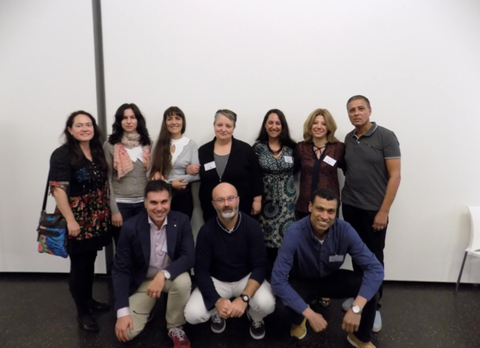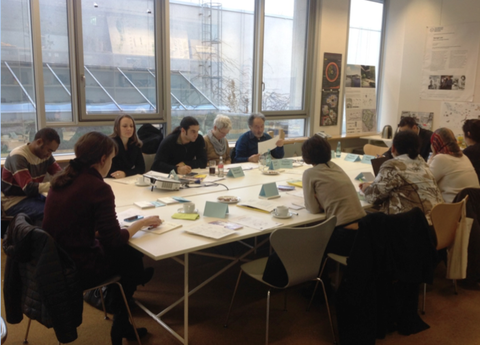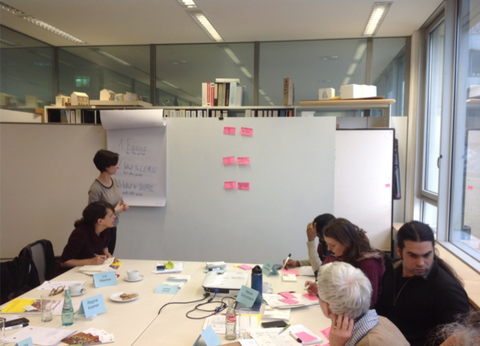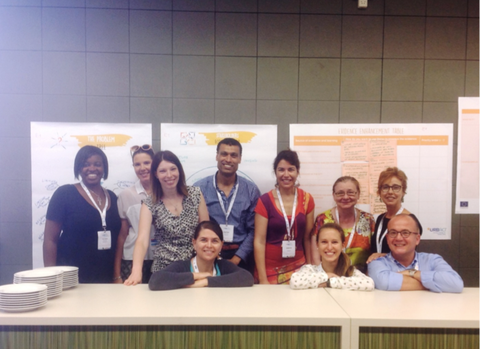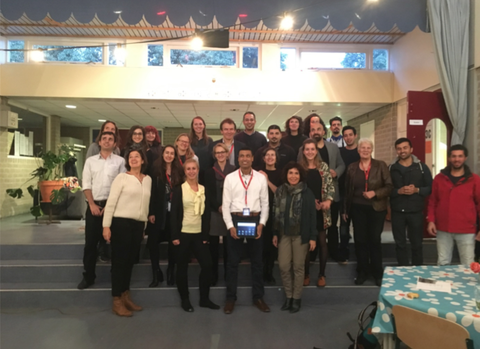ARRIVAL CITIES
Arrival Cities is an action planning network within the URBACT III pogramme. URBACT is a European exchange and learning programme supporting sustainable urban development. The URBACT programme helps cities to develop pragmatic solutions to common policy challenges by working together. The Arrival Cities network is focused on the challenge of managing global migration flows at a local level. Arrival Cities Project was launched on 15 September 2015 and to be completed on 03 May 2018.
Cities of migration are places of inclusion and exclusion. The chilling events of the past year from Charlie Hebdo to Pegida, remind us that discrimination and prejudice on all sides remain important challenges to face. Local authorities need to deal with how to manage this diversity and find the intersection between various areas in relation to the growing migrant population.
In particular, local authorities have to tackle some concrete challenges, such as: more difficult economic integration due to the economic crisis; increasing risk of social exclusion; educational achievement of second- and third-generation migrants; rise of racist and xenophobe movements; increasing diversification in the composition of immigration flows (e.g. migrants from either Member States and third countries; both skilled and unskilled migrants).
To deal with this situation, the project aims to foster migrants’ social inclusion sharing good practices between project partners, in order to facilitate local authorities facing the challenges and problems described above. In particular, the project has the objective of exchange practices on the following topics: effective use of migrant human capital; access to key services such as housing, health and education; fight against xenophobia; encourage the involvement of the private sector; e-Inclusion (use of the new technologies).
Co-operation Partners:
The Arrival Cities network is led by the Municipality of Amadora in Portugal. Amadora’s partner cities in the network are:
Municipality of Amadora, Amadora (Portugal) – Link
Municipality of Thessaloniki, Thessaloniki (Greece) – Link
Municipality of Riga - Education, Culture and Sports Department Riga (Latvia) – Link
Municipality of Messina, Messina (Italy) – Link
Municipality of Roquetas, Roquetas de Mar (Spain) – Link
Municipality of Vantaa, Vantaa (Finland) – Link
Municipality of Patras, Enterprise for Planning & Development, Patras (Greece) – Link
County of Val-de-Marne, Créteil (France)
City of Oldenburg, Stabsstelle Integration, Oldenburg (Germany) – Link
Technische Universität Dresden, Laboratory of Knowledge Architecture, Dresden (Germany)
LSG Members:
Each partner among Arrival Cities Network has created a Local Support Group (LSG). LSG meetings should be held regularly (at least 8-10 times in the next two years) to review the situation facing Dresden locality in respect to the issues of migration and integration and to work together to produce an integrated local action plan. In supporting the review and production of our integrated local action plan, the LSG members will also undertake to take part in one or more transnational workshops that will be held (there will be five in total) during the AC project life and which will bring together delegates from all 10 LSG’s in order to discuss, review each other’s practices and share experiences on various sub themes.
News:
URBACT Summer University, Rotterdam, 24-26 August
The Summer University is unique learning journey aiming at building the skills and capacities of urban professionals to manage Local Groups and develop Integrated Action Plans. The 3rd edition in Rotterdam came at the optimal moment in our URBACT network cycle, when city partners are establishing their URBACT Local Groups and starting the process of engaging stakeholders to co-create their integrated action plans. It provided partners with the tools, methods and policy content that are need to successfully develop local integrated policies. These intense 3 days together offered the possibility for Lead Partners and Experts, to gather our network partners and further build up our own network dynamics. And of course, as a complement to network activities, the Summer University gave a chance to URBACT partners to share and work with other cities and practitioners across Europe, beyond their own network.
Working conference partnership ‘Inclusion of Migrants and Refugees, Amsterdam, The Netherlands, November 10 - October 11
The Working Conference on Reception and Housing is a two-day event, November 10th and 11th that took place in the DeLaMar theatre in Amsterdam. The conference brought together experts from different backgrounds to generate expert input and produce workable solutions to the most pressing issues on the topics of reception and housing of migrants and refugees. Arrival Cities Coordinator has asked TU Dresden to represent the AC Network in the Working conference.
Project Duration:
May 2016 – May 2018
Local Co-ordinator:
Magdi Khalil
Email: m
Team Members:
Dr. Ana Tomas
Email:
Tel.: + 214369092 Ext 1814
Verginia Politi
Email:
Irina Vasiljeva
Email:
Giacomo Villari
Email:
Francisco Iborra
Email:
Lautiola Hannele
Email:
Chrissa Geraga
Email:
Mahmoudi, Rachida
Email:
Oltmann, Angela
Email:
Milestones:
* Capturing and sharing good practice from transnational learning events
* Methods for effective co-production of the local action plan
* Influencing policy in other service areas (e.g. housing, education, health,transport)
* Effective co-ordination of Urban Local Group ULGs
* Writing a local action plan
* Identifying funding to implement the local action plan
* Getting positive media coverage of the ULG’s work
* Involving wider communities in the ULG’s work
* Engaging the Managing Authorities (for EU structural funds) in the ULG’s work
* Enabling volunteer/unfunded groups to fully participate in the ULG
Further Links:
–
